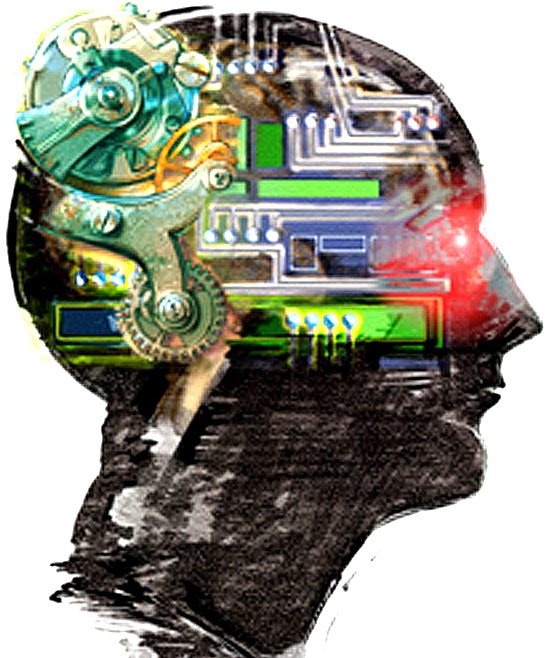Cure for Atypical Depression and Bipolar Treatment with modafinil
For patients who suffer from mood problems such as depression, the search for relief can be quite frustrating and time-consuming.
In addition to on-label uses, doctors are sometimes able to prescribe drugs approved by the U.S. Food and Drug Administration (FDA) for off-label purposes. One such instance is the use of modafinil to treat certain types of mood disorders.The use of modafinil for depression has been shown to reduce the severity of symptoms when taken with other prescription anti-depressants. Studies have shown that it can be an effective adjunct treatment for major depression and bipolar disorder.
Overview of Modafinil
Modafinil originated in France. Patients in the U.S. can buy the medication in pill form as modafinil, the generic form, or as Provigil, the brand name. In 1978, the FDA approved the drug for use in adults to treat narcolepsy and other sleep disorders.
Experts frequently refer to modafinil as a so-called “smart drug,” a cognitive booster that can improve a person’s memory, focus, and attention span.Doctors are also able to prescribe modafinil for depression and other mood disorders despite the fact that the drug has not been specifically approved for that purpose.
Modafinil for Depression
While modafinil and Provigil are not conventional medications to treat depression, they can create effects thought to help a patient with mood disorders. They appear to be particularly promising for individuals who suffer from major depressive disorder and bipolar disorder.One double-blind study involving subjects with bipolar disorder suggested that a significant number of patients on Provigil experienced benefits in mood.
However, since modafinil stimulates the central nervous system, it also has the potential to actually raise levels of anxiety, a disorder that often co-exists with depression.Modafinil is one of the most recent avenues used to treat bipolar disorders. Researchers report that doses of 100 to 200 mg a day have alleviated bipolar symptoms after a six-week treatment cycle and when compared to patients who instead took a placebo. In the modafinil subjects, some improvement occurred by the end of the second week.
One traditional way of treating mood disorders is to use stimulants in addition to standard antidepressant drugs. Stimulants like amphetamines and methylphenidate form a kind of support system for traditional drugs.Modafinil is not a stimulant and as a result, its use avoids some of the unpleasant side effects associated with taking stimulants, such as fatigue and difficulty sleeping.

Benefits of Modafinil for Mood Disorders
Recent work at a California university suggested that Provigil could be helpful to mood disorder patients because its use promotes a sense of well-being, boosts concentration, and cuts fatigue. Unlike many drugs that stimulate the central nervous system, it has shown little potential to be habit forming.
These factors suggest that it could be a better choice than a stimulant to treat anhedonia, which is the lack of ability to feel pleasure from things normally considered enjoyable.A small New Jersey study that followed seven patients – four with major depression and three with bipolar symptoms – used modafinil after these patients either failed to respond to a conventional antidepressant or responded only partially.By the end of two weeks, all the patients reached full or partial remission. The fatigue these patients experienced experienced prior to taking modafinil significantly responded to the drug. No significant side-effects were observed that would lead to discontinuing the drug.
Experts have noted that around a third of individuals diagnosed with depression get little if any benefit from using only antidepressants as medication, even when undergoing psychological counseling.A 2013 study that involved three U.K. universities suggested that taking modafinil along with conventional antidepressants treated depression more effectively than using only antidepressants.
The same study reviewed the records of 568 patients diagnosed with unipolar depression and 342 considered to suffer from bipolar depression.It was concluded that the use of modafinil both cut the level of depression and improved remission rates. Additionally, the drug was found to positively affected levels of fatigue and sleepiness.
Modafinil and Dopamine
modafinil for bipolar depressionResearchers believe that the key to modafinil’s effectiveness in treating mood disorders is linked to the role of dopamine in the brain. Brain cells called neurons utilize chemical messenger molecules known as neurotransmitters in order to communicate.Many healthcare professionals link mental illness and mood disorders like depression at least in part to the dysfunction in at least one neurotransmitter system.
Dopamine, made from a modification of the amino acid tyrosine, is a neurotransmitter. It regulates motor activity and is also responsible for motivation, reward, pleasurable feelings, and attention.Loss of interest in pleasurable activities, feelings of sadness, sleep pattern changes, and alteration of appetite level are all associated with depression.Without adequate levels of dopamine, effective communication with neurons is impossible. Drugs traditionally used to treat depression typically target the group of neurotransmitters called monoamines. They include dopamine.
In one study of modafinil and dopamine, 10 male subjects were divided into two groups. One group took Provigil, while the other took a placebo.Data from the Provigil group showed that the drug blocked dopamine transporters. These transporters remove dopamine from brain synapses. Blocking these transporters in the brain acutely increased dopamine levels.
For professionals who treat mood disorders, modafinil for depression treatment offers future potential to become a medication of choice, especially for patients with limited or no response to traditional drugs.Its lack of several side effects associated with commonly used stimulants to treat these conditions could offer additional patient benefits.

